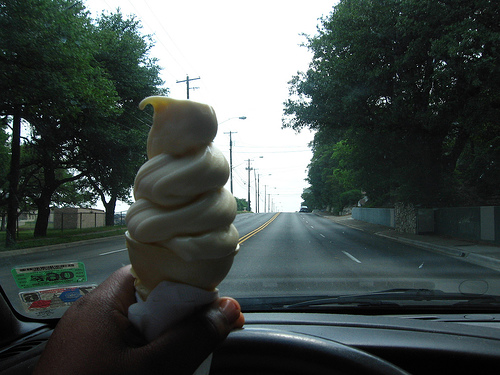
The prevention of distracted driving crashes is largely focused on stopping people from using electronic devices while operating their vehicles. In South Carolina, for example, there is a ban on texting or emailing while driving and motorists can pay $25 for a first time offense.
Although texting or talking on a cell phone while driving is unquestionably a high risk activity, cell phone use may not be the biggest or most common problem when it comes to collisions. Eating while driving may actually be one of the most serious risks that motorists face on the road. There is no law in South Carolina directly prohibiting eating while driving, but a motorist who is too focused on his food could be considered reckless and thus could be held responsible if he causes a collision. A Charleston, SC accident lawyer can help victims of crashes to determine if the driver who hurt them was careless behind the wheel because he was distracted by eating or drinking. If you can prove the motorist was negligent, you can recover compensation.
Eating and Driving Can Be Dangerous
A study reported on by NY Daily News indicated that around 80 percent of all car accidents are caused by drivers who are distracted by eating. Another 65 percent of near-miss accidents involve motorists who are consuming food behind the wheel.
Burgers are one of the worst foods to eat behind the wheel, but drivers responding to the survey indicated that coffee was the least safe thing to consume out of any food or beverage. Coffee is so dangerous because even when there is a travel lid on the drink cup, the hot liquid can spill out when the driver hits a bump. Other especially high-risk foods to eat while driving included soup; tacos; chili dogs; ribs; wings; jelly doughnuts, fried chicken, chocolate and soft drinks.
Despite the risks of eating and driving, the vast majority of motorists report that they both eat and drink behind the wheel. Out of 1,000 drivers studied, for example, 70 percent said that they consumed food while driving and another 83 percent admitted that they consumed beverages.
Some law enforcement officers have begun to take action to try to deal with this problem. Just recently, for example, the New York Times reported on a man who was ticketed while driving through suburban Atlanta while he was eating a burger. The law he was cited under requires a driver to “exercise due care”when operating a motor vehicle on highways and prohibits drivers from engaging in “any actions which shall distract such driver from the safe operation of such vehicle.”
The officer stated several times that drivers can’t just drive down the street eating a hamburger. The driver who was ticketed plans to contest the citation. However, the national attention given to this story should be a wakeup call to motorists that eating is a form of distracted driving and is a dangerous one at that. Motorists should save food and drink consumption until they get home, and victims of crashes involving drivers who were eating should consult with a Charleston injury lawyer to understand their rights.